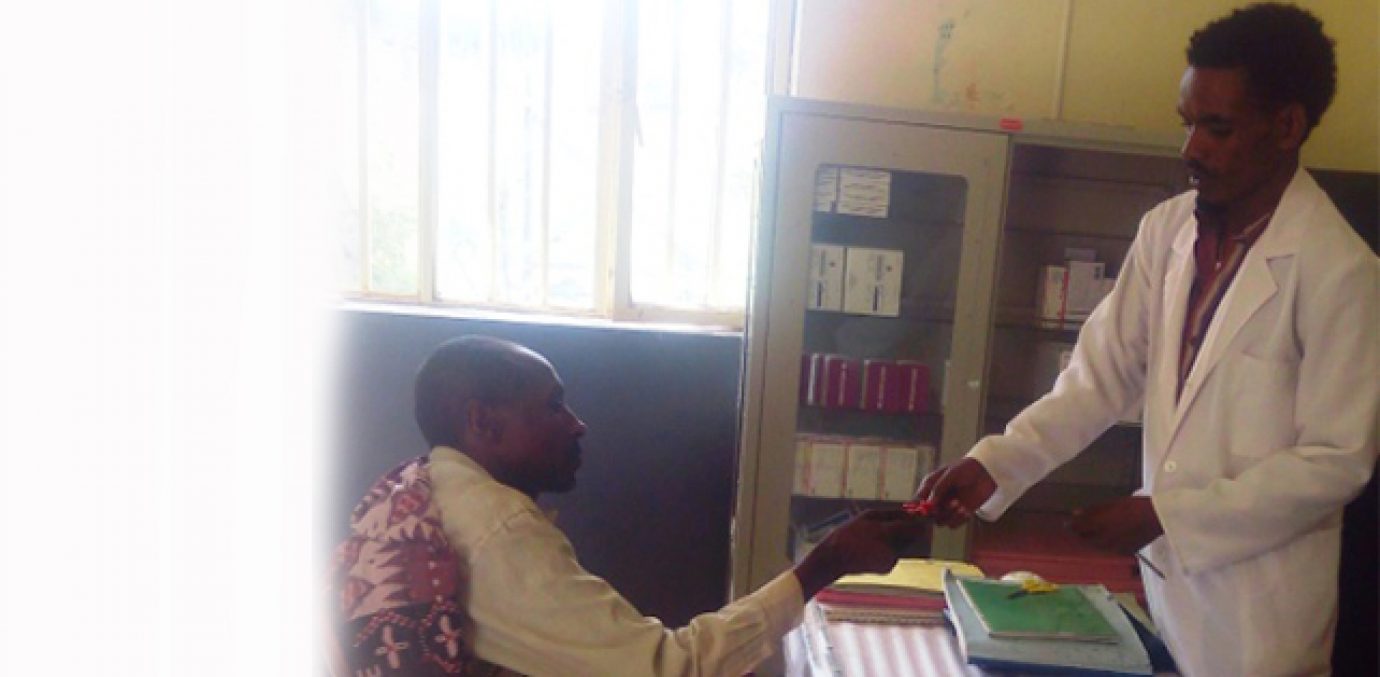In Ethiopia, around one million traditional gold miners are at high-risk of TB. They work in confined spaces and are exposed to respirable crystalline silica that can build-up in their lungs and make them vulnerable to the development of TB disease. In spite of strengthened TB control efforts, traditional mining in Ethiopia is an area that has until now been neglected in the fight to end TB. There are no public health services for the traditional mining industry and the remoteness of the mines means access to health services is difficult. Delays in TB case detection and initiation of treatment and a lack of follow-up services are common in the traditional mining sites.
To address this problem, Management Sciences for Health (MSH), through the KNCV led USAID-funded Challenge TB project, recruited and trained volunteer TB Treatment Supporters (TTS) from the traditional mines in the southern part of the Oromia Region. This region has an estimated miner population of 30,000. The volunteers were educated on how to identify presumptive TB cases, TB screening and referral, counseling and treatment supervision.
Thanks to my training I now know a lot about TB and I’m teaching my peers in the mine so that our workplace and families remain safe
Mustafa Adbi, 24
When Mustafa Abdi, a 24-year old miner at the Melka Soda Woreda gold mine, started to develop symptoms including coughing, fever, severe chest pain and weight loss, he visited the nearby health center. At the facility, he was tested for TB, and was diagnosed with pulmonary TB (bacteriologically confirmed) and put on first line anti-TB treatment. He completed the treatment on July 23, 2016, and was declared cured.
Six months later, Mustafa’s father, Abdi, developed similar symptoms. His father visited the same local clinic and was given antibiotics, but his health got worse by the day. Mustafa, who volunteered to be part of the case finding team, informed the Woreda USAID/CTB program coordinator, that he had recently had TB and that he thought his father might also be suffering from the disease. He suggested that his father be evaluated together with other family members with whom he had had contact during his illness. Abdi was screened a sputum sample was sent to the Megado GeneXpert site by motorbike for testing. Mustafa’s father turned out to have bacteriologically confirmed pulmonary TB and he was referred to a nearby health center, where he was put on anti-TB drugs and given counseling on treatment adherence.
His treatment began in April 2017. As a TTS, Mustafa took the responsibility for his father. Abdi was weak and was therefore not able to travel the distance to the nearby health center. He remained at home taking the TB treatment under the observation of his son. “I feel a lot stronger now,” Abdi says. “Going to the health center for daily observed TB treatment would have been difficult for me because of the distance and the cost of transport”.
Among the eight family members screened for TB, three were diagnosed with bacteriologically confirmed pulmonary TB using GeneXpert and put on treatment. Today, GeneXpert rapid diagnosis, shorter turnaround times, and appropriate anti-TB treatment are improving people’s chance of early diagnosis, cure and are reducing the further transmission of TB. The Megado Health Center is one of the health centers near the mine which has a GeneXpert machine provided by USAID/HEAL TB and Challenge TB continued providing ongoing technical and material support.
“Thanks to my training I now know a lot about TB and I’m teaching my peers in the mine so that our workplace and families remain safe”, said Mustafa. Mustafa is committed to raising awareness about the disease and continues to provide support for new TB patients.
MSH through the KNCV led Challenge TB project has been providing continued support by training 250 volunteer mining workers, conducting regular mass screenings, providing health education to over 15,000 mining workers, the distribution of 5,000 leaflets, building the capacity of public health care and health extension workers, mentoring, and hosting semi-annual review meetings.
Photo: Ali Galgalo
Based on a story by: Ali Galgalo, Berhan Teklehaimanot and Tristan Bayly

